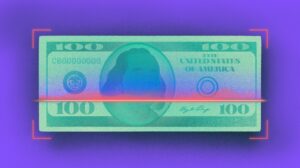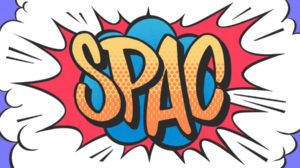It seems now that national politics has once again subsided into the dull affair it should be, America is in need of a new form of mass amusement, or outrage, depending on your outlook. The GameStop trading fiasco this week offered that in spades.
A very brief recap for anybody who somehow tuned it all out: This week, shares in video game retailer GameStop, AMC Theatres and other struggling brands soared as much as 400 percent as hordes of amateur stock traders coordinated on the Reddit forum r/WallStreetBets, TikTok and other online communities to drive the selected stocks higher — in some cases making a lot of money in a very short period of time, while also inflicting substantial financial losses on hedge funds that had taken out massive short positions on those stocks.
Subscribe to the Crunchbase Daily
Like one of the earliest known bubbles, tulip mania — the frenzied tulip bulb price runup and subsequent collapse that swept Holland in the early to mid-1600s — the r/WallStreetBets frenzy became a self-fulfilling prophecy, with more traders piling into stocks as their peers egged them on and prices soared ever higher. In the midst of it all, the day-trading app Robinhood temporarily blocked new purchases of GameStop and other stocks caught up in the volatility, drawing intense ire from retail investors as well as some political and business leaders.
By the time of this writing on Friday afternoon, Wall Street just closed out its worst performance in months and the large financial players are suddenly reckoning with the implications of the new “meme stock” phenomenon.
It’s hard not to view the GameStop fiasco as a classic David vs. Goliath fight: A group of little guys organizing en masse to stick it to some of Wall Street’s biggest and most sophisticated players.
In the midst of the fray, even arch-enemies Rep. Alexandria Ocasio-Cortez and Sen. Ted Cruz seemed to briefly agree on that point, with Cruz offering support to comments from AOC in which she said she wanted more information on Robinhood’s “decision to block retail investors from purchasing stock while hedge funds are freely able to trade the stock as they see fit.” (The consensus was short-lived: AOC swiftly reminded the senator of his role in the instigation of violence at the Capitol earlier this month and said she’d work with “almost any other GOP that aren’t trying to get me killed.”)
Chamath Palihapitiya, the billionaire tech investor, himself got in on the action this week, reportedly buying $125,000 worth of GameStop call options, turning a quick profit when his bet soared, then donating $500,000 to a fund to help small businesses struggling during the pandemic.
In an interview with CNBC afterward, he explained what he thought the movement was all about. He’d spent hours poring over the r/WallStreetBets forums, he said, and came to this conclusion: “What you’re seeing is essentially a pushback against the establishment in a really important way. … A lot of people, coming out of 2008, they took a lot of risk, and they left retail (investors) as the bag-holder. And a lot of these kids were in grade school or high school when that happened. They lost their homes, their parents lost their jobs, and they’ve always wondered, ‘Why did those folks get bailed out for taking on enormous amounts of risk, and nobody showed up to help my family?’”
Tesla CEO Elon Musk chimed in too, with a one-word encouragement to the traders on Tuesday: ”Gamestonk!!”
As for me, I’m with Chamath, AOC and Elon on this one. Yes, the r/WallStreetBets traders may largely be a crowd of lulz-seeking dudes engaging in risky day-trading. Yes, some people will undoubtedly lose their shirts as this roller coaster comes crashing back to Earth. The Reddit traders appear to be motivated by some dizzying combination of thrill-chasing and profit-seeking, a principled sense of schadenfreude about sticking it to crony capitalists, and a wistful nostalgia for relic brands like GameStop.
But you have to hand it to them: As Chamath also notes, many in the r/WallStreetBets crowd are actually doing more fundamental financial analysis on companies than many of the professional analysts who whisper in Wall Street’s ears. The Reddit traders were also savvy enough to see that some of the world’s largest hedge funds were leveraged to the hilt on certain stocks, and they figured out how to organize an army of traders to exploit that vulnerability.
As a result, Melvin Capital, one of the hedge funds that had shorted GameStop’s shares, was forced to get a bailout to the tune of $2.75 billion from other investors. D1 Capital Partners, reportedly one of 2020’s top-performing hedge funds, posted a 20 percent loss this month as its positions were hammered by day traders, according to Bloomberg reporting. Point72 Asset Management, a $19 billion hedge fund, is down as much as 15 percent since the start of the year, sources told Bloomberg, as a result of the meme stock trading.
Displaying a stunning lack of self-awareness, some of Wall Street’s wealthiest were quick to cry foul. Hedge fund billionaire Leon Cooperman went on CNBC to angrily lament the nerve of “people sitting at home, getting their checks from the government!” while trading stocks, a privilege that’s apparently reserved for him and his friends in the Hamptons. “It’s just a way of attacking wealthy people!” he yells.
Another clear loser in all this: Robinhood, the day-trading app where many of the Reddit traders make their trades. The platform incited outrage among users yesterday when it halted new purchases of shares in GameStop and about a dozen other volatile stocks. Further fanning the flames was speculation that the app had done so at least in part at the behest of Wall Street customers: Robinhood is able to offer free trades to retail users because it generates a large portion of its revenue from “order flow,” or the practice of essentially selling information about its user’s trades to hedge funds and other institutional investors before those trades are actually executed.
Robinhood CEO Vlad Tenev went on CNBC Thursday to explain the company’s reasons for halting trades — ”we absolutely did not do this at the direction of any market maker or hedge fund … The reason we did it is because Robinhood, as a brokerage firm, we have lots of financial requirements,” he said — but his comments did little to quell the outrage. The company went on to get a quick $1 billion funding infusion yesterday from prior venture investors including Sequoia Capital and Ribbit Capital to shore up its balance sheet.
Whatever Robinhood’s true reasons for halting those trades, the damage to its reputation and business will likely linger. An $11.7 billion unicorn that itself is moving toward a public listing, Robinhood took as its name a swashbuckling hero who took from the rich and gave to the poor. Its entire business is built on the (arguably misguided) notion that the common man should enjoy the same level of access to the public markets as sophisticated Wall Street institutions. And yet this week it undoubtedly tipped the scales back to the rich and powerful. It’s hard to see the heroism in that.
Illustration: Dom Guzman

Stay up to date with recent funding rounds, acquisitions, and more with the Crunchbase Daily.






![Illustration of stopwatch - AI [Dom Guzman]](https://news.crunchbase.com/wp-content/uploads/Halftime-AI-1-300x168.jpg)
67.1K Followers